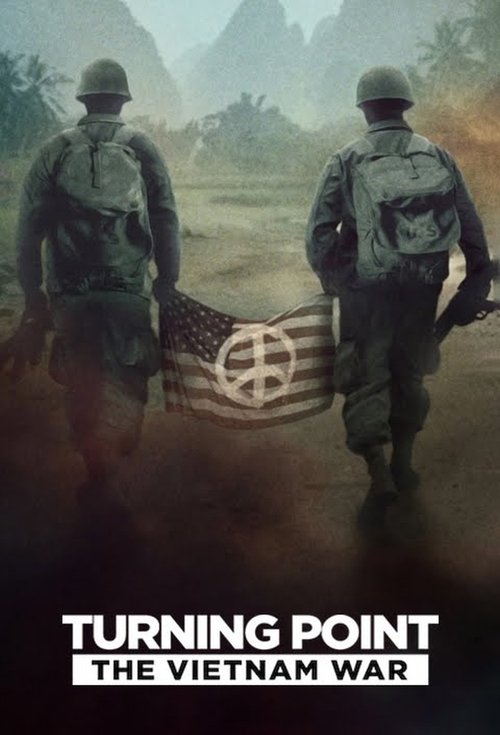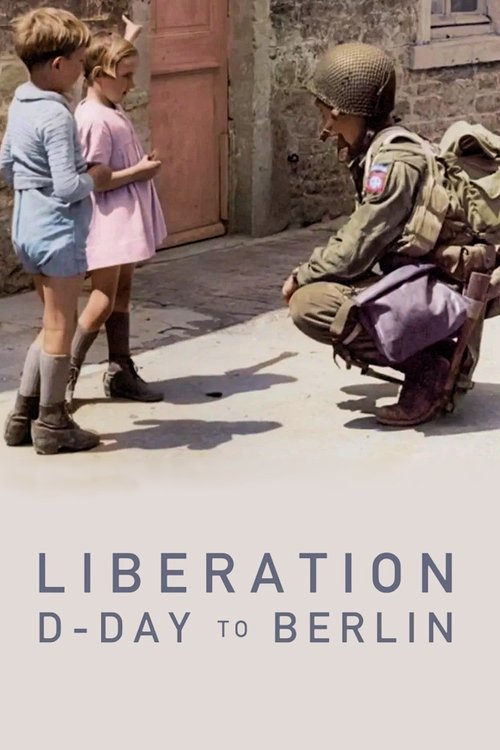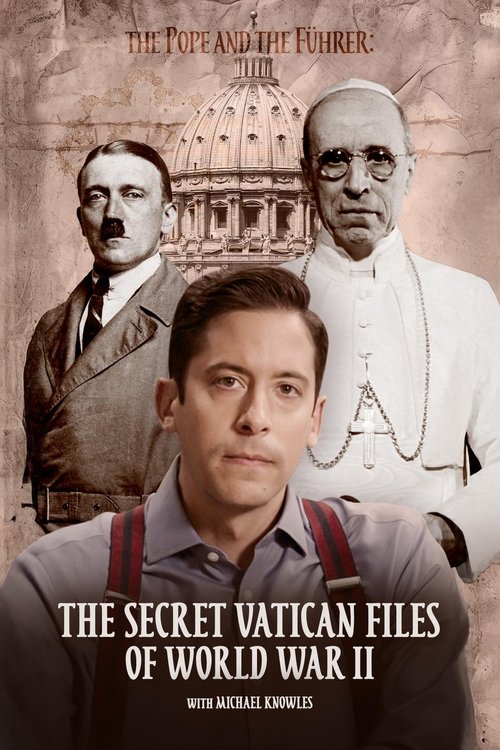
Ask Your Own Question
What is the plot?
The documentary series "Turning Point: The Vietnam War" begins by setting the stage for the conflict, explaining how the war started and its early stages. It delves into the political climate of the time, highlighting the role of false intelligence and political lies that led to the U.S. involvement in Vietnam. The series explores the escalation of the war, including the Gulf of Tonkin incident, which was used as a pretext for increased U.S. military involvement.
As the series progresses, it examines the impact of the war on both American and Vietnamese societies. It features interviews with U.S. veterans, Vietnamese survivors, and political officials from both North and South Vietnam. These accounts provide a comprehensive view of the war's effects, including the psychological toll on soldiers and civilians, and the erosion of trust in the U.S. government.
The documentary highlights key events such as the My Lai Massacre, which further divided public opinion on the war. It also explores the strategic decisions made by U.S. presidents, including the gradual withdrawal of troops and the eventual fall of Saigon. The series emphasizes the chaos and desperation during the evacuation of Saigon, where thousands of Vietnamese who had worked with the Americans were left behind, facing severe repercussions.
The series delves into the aftermath of the war, including the retribution faced by South Vietnamese who had collaborated with the U.S. and the mass exodus of refugees. It also touches on the broader geopolitical implications, such as the impact on neighboring countries like Cambodia, which soon faced its own genocide under the Khmer Rouge.
Throughout the five episodes, "Turning Point: The Vietnam War" presents a balanced perspective, showcasing the motivations and suffering of all parties involved. It concludes by reflecting on the lasting impact of the war on American identity and society, highlighting themes of distrust, division, and the ongoing struggle to come to terms with the conflict's legacy.
More TV Shows Like This
Browse All TV Shows →
What is the ending?
The ending of the 2025 Netflix documentary series Turning Point: The Vietnam War captures the monumental human toll and enduring legacy of the conflict, culminating in the fall of Saigon on April 30, 1975. It depicts the war's brutal conclusion, with South Vietnam collapsing under North Vietnamese forces, marking the end of a deeply divisive and costly chapter in American and Vietnamese history. The final moments in the series emphasize the personal and national trauma, as well as the long-lasting consequences that reverberate through subsequent American conflicts such as Iraq and Afghanistan.
The final episode, titled The End of the Road, unfolds chronologically with a somber recounting of the last days leading up to the fall of Saigon and the Vietnam War's conclusion. The scene opens with archival footage showing the chaotic evacuation of American personnel and desperate South Vietnamese civilians from Saigon, as North Vietnamese troops close in on the city. The imagery is poignant: helicopters lifting off from rooftops, crowded airstrips, and the palpable fear and uncertainty on the faces of those fleeing their homes.
As the North Vietnamese forces penetrate deeper into South Vietnam's capital, the episode narrates how the South Vietnamese government collapses, signaling the complete failure of U.S. efforts to prevent communist takeover despite years of military and financial support. The documentary underscores throughout these moments the enormous human cost--over a million North Vietnamese and Viet Cong fighters and 250,000 South Vietnamese soldiers dead, alongside 58,220 American service members who lost their lives.
Intercut with these visuals are candid interviews with veterans, survivors, and experts who reflect on the psychological scars left on both Americans and Vietnamese. The narrative closes with contemporary commentary highlighting how the Vietnam War seeded distrust in U.S. leadership and changed the nation forever, reinforcing the notion that the war was not just a military defeat, but a turning point redefining America's domestic and foreign policy landscape.
The final scenes draw a line connecting the Vietnam War's aftermath to later conflicts such as those in Iraq and Afghanistan, suggesting history's painful repetitions. The lasting human trauma, political fallout, and the war's deeply fractured legacy emerge as the central focus, leaving viewers with a poignant understanding that, in the words voiced in the documentary, "the human toll is enormous" and the lessons of Vietnam resonate long beyond the battlefield.
Who dies?
"Turning Point: The Vietnam War," a documentary series released in 2025, does not focus on fictional characters or scripted storylines but rather explores historical events and real-life experiences during the Vietnam War. The series examines the impact of the war on both individuals and society, highlighting the immense human cost and lasting consequences. It includes accounts of historical figures and veterans, but these are based on real events rather than fictional narratives.
The series does mention significant historical events and casualties, such as the Tet Offensive and the killing of hostages, including civilians and school children, in mass graves during the reclamation of Hue. However, these are not fictional characters but historical events that occurred during the war. The series also discusses the toll of the war, including the deaths of 1.1 million North Vietnamese and Viet Cong fighters, 250,000 South Vietnamese troops, and 58,220 American service members.
In summary, while the documentary series does discuss deaths and casualties as part of its historical narrative, it does not feature fictional characters or scripted death scenes.
Is there a post-credit scene?
There is no information available regarding a post-credits scene in the 2025 Netflix documentary series "Turning Point: The Vietnam War." The series focuses on the Vietnam War, using archival footage and interviews with historians and veterans to explore the conflict's complexities and emotional impact. It does not include any mention of a post-credits scene in the available descriptions or reviews.
What are the key themes explored in 'Turning Point: The Vietnam War'?
'Turning Point: The Vietnam War' explores themes such as the profound impact of the war on the countries involved, especially the United States; the disillusionment and trauma experienced by American soldiers, including PTSD; the political deception by the U.S. government about the war's winnability; racial inequalities in the draft; and the broader ideological conflict between communism and capitalism during the Cold War era.
How does the series portray the experiences of American soldiers during the Vietnam War?
The series highlights that most American soldiers were very young and often did not understand the war they were fighting. It shows their struggles with low morale, drug abuse, violence, nightmares, suicides, and homelessness after returning home. The veterans' disillusionment is a central focus, with some, like ex-Marine Scott Camil, viewing the war as a 'lie.' The series also addresses the ongoing trauma and societal challenges faced by these veterans.
Does the documentary include perspectives from Vietnamese people affected by the war?
While the documentary centers heavily on the American experience, it does include some Vietnamese perspectives, such as survivors of the My Lai Massacre who provide heartbreaking testimony. However, some critiques note that the film underrepresents Vietnamese narratives and frames the war mainly as an American moral dilemma rather than a Vietnamese struggle for national liberation.
How does 'Turning Point: The Vietnam War' depict controversial events like the My Lai Massacre?
The series features a chilling, detailed sequence on the My Lai Massacre, including commentary and photographs from military photographer Ronald Haeberle, who documented the atrocity with uncensored personal photos. This segment is noted for its graphic and emotional impact, highlighting the brutal killing of hundreds of civilians by U.S. troops shortly after the 1968 Tet Offensive.
What does the series reveal about the U.S. government's role and public perception during the Vietnam War?
The documentary reveals that the U.S. government was aware the war could not be won but continued to mislead the American public, sacrificing young lives in a futile effort. It shows the government's attempts to maintain public support despite the growing evidence of failure, contributing to widespread disillusionment and loss of faith in elected leaders. The series also touches on the racial disparities in the draft and the political turmoil surrounding the war.
Is this family friendly?
The TV show Turning Point: The Vietnam War (2025) is rated TV-MA, which means it is intended for mature audiences and is not considered family-friendly for children. As a documentary focused on the Vietnam War, it includes potentially upsetting and objectionable scenes that may affect children or sensitive viewers, such as:
- Graphic war violence and combat scenes typical of war documentaries
- Depictions and discussions of death and suffering
- Intense emotional and psychological trauma related to wartime experiences
- Possible disturbing historical footage and firsthand accounts of warfare
Because of these mature themes and content, parents and sensitive viewers should exercise caution. The series aims to provide a detailed and realistic portrayal of the Vietnam War's impact, which can be distressing without spoiling any specific plot details.





















